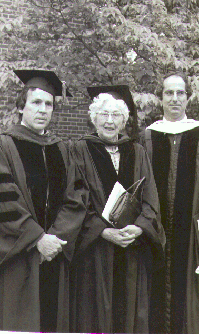
Nine years after her retirement in 1972, Dr. Mildred Martin is awarded the Bucknell Medal for Distinguished Teaching and Scholarship. She is pictured here with former students Jack Wheatcroft, Class of Class of 1949, and Philip Roth, Class of 1954.
Kalp, Public Relations
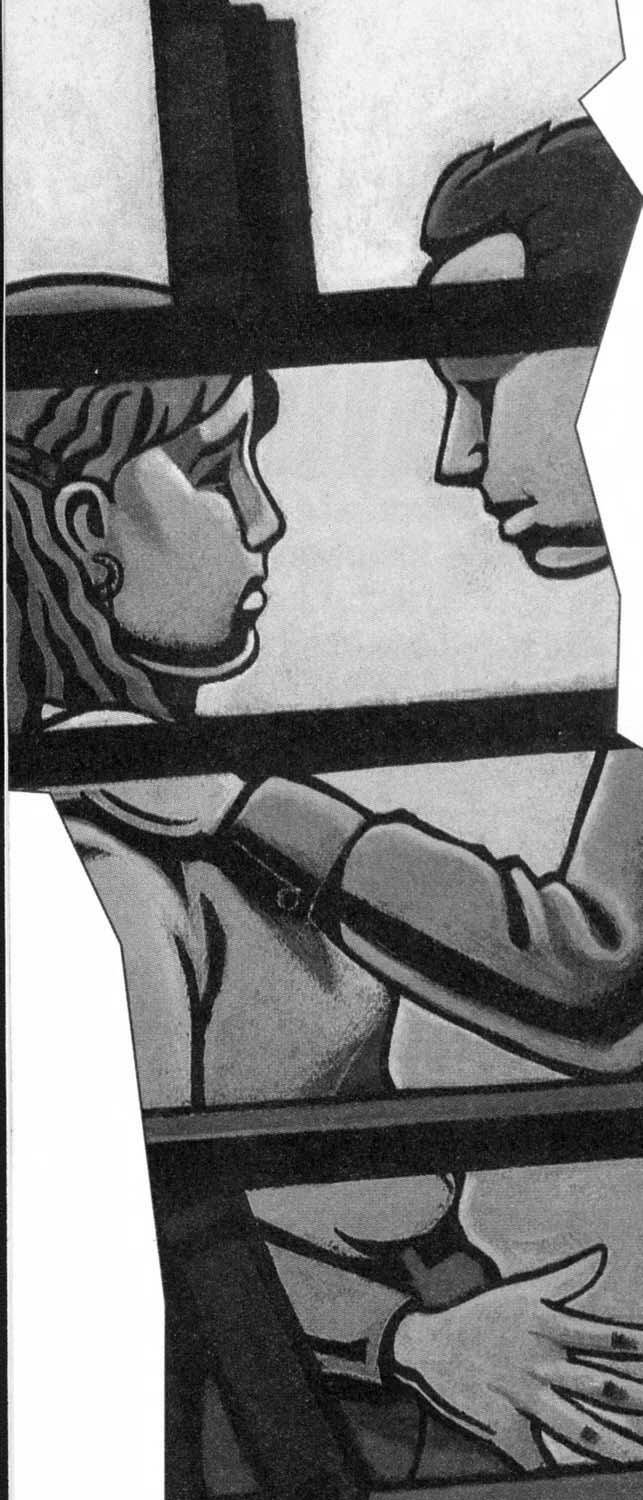
WRC Interview, 9/4/96
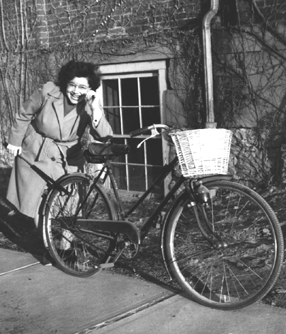
When asked during an interview about female students in her classes,
Professor Hulda Magalhaes told the following anecdote:
"I had a very bright female student in one class. What I would do for
tests was, we would have several premeditated tests. Several of the students
had actually done better than their test scores had indicated. I offered
these students a make up test and this would allow them to raise their
grades. This one female student refused to take the test because then
she would end up with a better grade than her boyfriend, who attended
another college. She felt that getting an 'A' would hurt her chances with
the 'B' average boyfriend. That really floored me!"
Despite earlier limitations placed on women in science and academe, Professor
Magalhaes made her own way and is considered an accomplished teacher and
respected researcher. She feels women need to learn how to survive and
that they should be recognized for their competence rather than their
gender. She says in a 1982 Bucknell World article that she was
able to be productive because she was adaptable. "Growing up in Brooklyn,
you learn how to get along," she says, "You duck when someone's taller
than you and you kick when someone's shorter." Professor Magalhaes, a
direct descendent of Ferdinand Magellan, the Portuguese navigator, says,
"Your ears get flexible. You get to know what's coming."
The zoologist who also studied nutrition and made her own wine, was
quoted as saying "The dames who think the world owes it to them ought
to know that quotas are illegal."
WRC Interview, 6/95; Bucknell World, May/June 1982
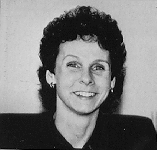
Fergusson, a graduate of Wellesley College, earned her doctoral degree in fine arts from Harvard University. She also studied at the Institute for Educational Management of the Harvard University Graduate School of Business Administration.
The Bucknellian, 8/27/82
Bucknell World, Nov./Dec. 1982
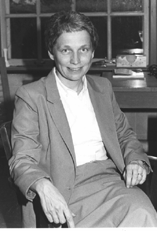
WRC Interview, 1/26/95

Milton Standard, Milton Pa., Tuesday, June 15, 1982
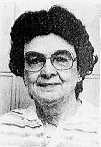
Milton Standard, Milton, Pa., Tuesday, June 15, 1982
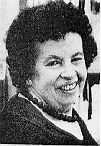
Rivoire started her career at Bucknell as assistant order librarian in 1957. She was promoted to assistant catalog librarian, catalog librarian, and chief of technical services. Since 1969, she held the position of chief, overseeing the ordering and cataloging of the library's collections and developing applications of Bucknell's computer system to the library.
Milton Standard, Milton, Pa., Tuesday, June 15, 1982
Ruth Burnham recalls working with determined, competent women students, and she remembers one student in particular, Beth Sipple '82:
"Beth is the one who got Christy's started and was a tremendous leader for Concern and Action, and just did a whole bunch of things. [She] is one of those students who every so often there's somebody you know you've made an impact on their lives. And I can remember her coming and sitting by my desk and saying, 'Isn't there anything else to do on this campus besides go to fraternity parties?' So we talked about what she would like that to be. We got more people involved, and we got Christy's started. Another time she wanted to talk about her interests and career, and she'd come (to Bucknell) wanting to be a doctor. Her father was a doctor. And she decided that she didn't really want to do that. So we tried to analyze, okay, what would take the best advantage of the course work you've already done in biology and the things that you love to do with children and helping people? I remembered that a high school friend of mine had been part of the psychosomatic disease unit at Harvard Medical Center of Boston Children's Hospital. I called. . .and I badgered them into taking Beth for a Jan Plan even though they normally had a six-month requirement for volunteers and a three-week orientation that they had to go through before they volunteered. I said, 'Look, take her. And she'll find ways to be helpful.' There she found they had an infant unit and one for older kids with psychosomatic problems. She found people who were combining the scientific and humanistic orientations, and went on to get a master's at Yale New Haven Medical Center, as the youngest person in the program. I feel like I helped her clarify and helped her find an opportunity that would take advantage of her skills; so those are the fun things. Those are what keep me in business."
WRC Interview, 2/96
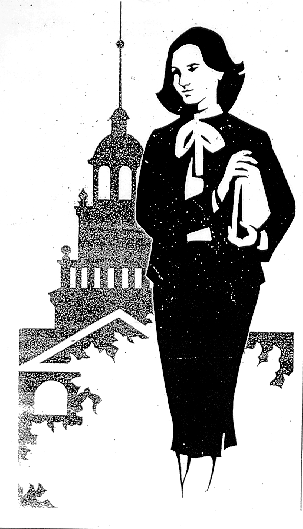
100 Years of Co-education
At the beginning of this century, Bucknell was into its second decade of coeducation. But coeducation then was still enough of a world phenomenon to call attention to this University's all male roots. From the 1901 L'Agenda:
"The college woman at Bucknell had a struggle in the beginning of her career. There were only three of her and she was not received with the most cordial enthusiasm. She and her two brave comrades were allowed to recite in college classes with men, and to do all the work required of men. They were therefore college women."
For the Bucknell college woman, the beginning was 1883, just about 100 years ago. To mark this milestone and honor a century of Bucknell coeducation, this issue of Bucknell World looks at women and at women's issues through Bucknell women. It is a compilation of female work and advancement, of philosophy and vision, of fulfillment and hope.
Though we look at Bucknell women with a strong sense of place for today and a good feeling of certainty for tomorrow, we must pause at least for once for a tribute to Chella Scott, the University's first woman graduate. If the present and future are secure for Bucknell women, it is because Chella Scott and others shaped the past.
In honor of the women who have been, are and will be the worthwhile reality that is Bucknell, this issue of Bucknell World is dedicated to the memory of Chella Scott. Because she wanted more than a "finishing school," she sought a university. She chose Bucknell and graduated with honors.
Chella Scott was the first; she was a curiosity. A century of women came after her, and their presence here today is ordinary and part of the routine. That's reason enough to celebrate.
Bucknell World
"Writing centers tend to start at open admissions universities, at large places where a lot of real teaching has to take place with the student population and to work their way up to places like Bucknell. And there's always resistance to anything that sounds as if it might be "remedial" as in we don't need that here. But of course we do need that sort of thing here. A lot of people need a lot of remediation in order to access the curriculum."
"The writing program is more innovative than something like the Writing Center. Because at Bucknell, what's interesting about our writing program is that faculty at all levels in all departments actually teach writing. And since it's voluntary, it really runs on the people's desire to improve their teaching and to help their students learn more through writing."
Catherine also recalls the significant gender differences at the Writing Center:
"The professional staff at the Writing Center are all women. Most of the student tutors are also female. And I wouldn't say that this is official but my perception is that we have more female clientele than male. Because women want to help and women are also more likely to feel comfortable receiving help and not feeling they're supposed to achieve everything all by themselves including every intellectual endeavor they ever do."
WRC Interview, 5/96
Professor of History Dr. Mary Hill recalls the early 1980's as a time of concern for women on campus. Part of the one annual fraternity fund-raiser involved sorority women competing for points in a larger content by staging provocative, humorous scenarios. "Ever since I first came to Bucknell the thing I heard the most criticism of was the Sig Derbyy, in terms of humiliation of women." Mary remembers, "in one of my classes, one of the students brought me the words. . .of some of the songs that would be sung in skits which were gross and obscene and violent... And so I xeroxed them and we distributed them to the faculty." In addition, in order to present irrefutable evidence of the problem, "one of my students by the name of Robin Wallace. . . took the video camera to the Sig Derby." Degradation of women had been a long-standing problem at Bucknell, explains Hill, and is not an "aberration" as many of the faculty supposed. "In fact, of course, it had been going on for years. And I think the power of the tape and the xeroxed words were that nobody could deny it."
Consequently, the documentation of the inappropriate behaviors on the part of the fraternity and sorority members helped to catalyze response on campus, and spurred activism on the part of students. This incident also served as an impetus to establish the Women's Resource Center in 1986.
WRC Interview, Spring 1995
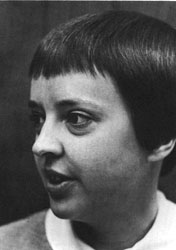 Brenda Gordan
Brenda Gordan
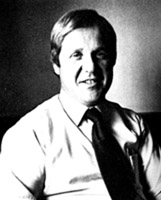
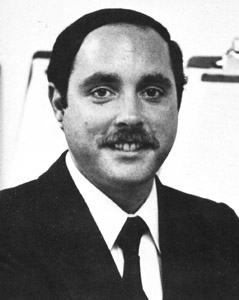
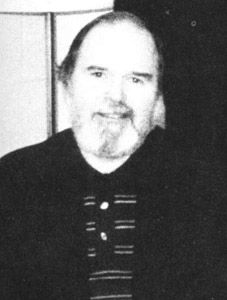
 Preston Hoyle
Preston Hoyle To the Editor:
Several women have written The Bucknellian, attesting to the reality of "date rape."
Clearly, acquaintance or date rape occurs. And, in our opinion, it constitutes a serious psychological stress. Many victims are unware of the totally confidental resources available to them, or do not use these resources because they feel guilty or ashamed, are afraid of getting the assailant in trouble, or are afraid that friends of the assailant will further humiliate or ostracize them if they speak out.
Because date or acquaintace rape can precipate serious psychological stress, we would like to urge any woman with such concerns to consult Ms.Hoyt or Dr. Wilder in Psychological Services. Her discussion will be strictly confidental: it will not be shared without her expressed permission. In addition, she will find any member of the Rape Victim Assistance Team understanding of her distress and dilemmas and knowledgeable about the medical, legal and other support resources available to her.
Rape Victim Assistance Team:
Ms. Brenda Gordon, Residential Life
Ms.Arlyne Hoyt, Psychological Services
Mr. Gery Commerford, Residential Life
Mr. Jack Dowling, Security and Safety
Rev. James Gardner, Chaplain
Dr. Preston Hoyle, Medical Service
Dr. Kathie Lang, Medical Service
Ms. Sharon McCrum, Security and Safety
Dr. David Wilder, Psychological Services
Ms. Roz Yannaccone, Medical Service
The Bucknellian
May 3, 1983
Denise Cohen graduated from Bucknell in 1983 with a bachelor's degree in Economics and Psychology. While at Bucknell, she lettered in basketball, volleyball and softball, captaining the last two sports. Cohen's first administrative job was at Molloy College from 1984 to 1990, where she served as an Athletic Director and assistant basketball coach. During this time, she received her master's degree in sports management from Adelphi University, NY, in 1987. In 1990, Cohen became an assistant Athletic Director, then served as interim Athletic Director and women's golf coach at the University of Hartford, CT. In order to gain more experience, Cohen moved on to an institution that had a football program. In 1994, she accepted the position of Senior Woman Administrator and Marketing Director in athletics at the University of the Pacific, CA. Unfortunately, due to a lack of funds, the football program at the university was cut during the next season.
During this time, the United States Air Force Academy had changed to NCAA Division I status, thereby creating the position of Senior Woman Administrator. Cohen has held this position since August 1995; initially she was the only woman administrator in her department of 270 employees. Cohen, who is the first civilian woman working for the Air Force Academy's athletic program, presently holds a rank equivalent to a colonel in the military.
Women in Higher Education, July 1997
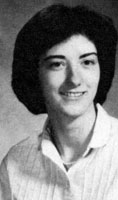
Weist
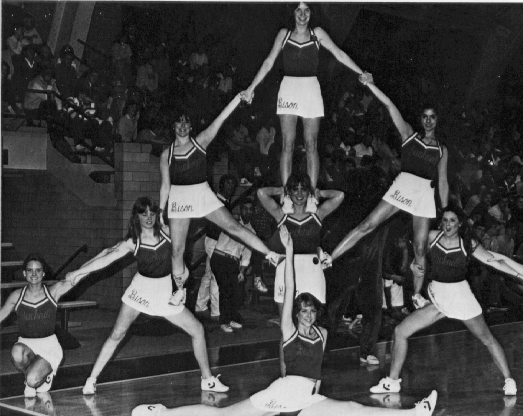
L'Agenda 1983
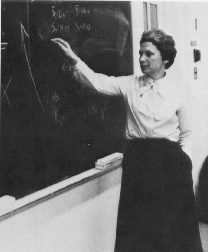
WRC Interview, 1/26/95
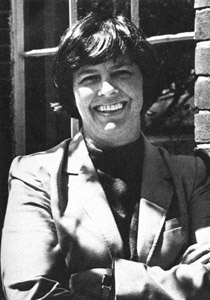 Marilyn Mumford
Marilyn Mumford Public Relations News Release, 2/1/84
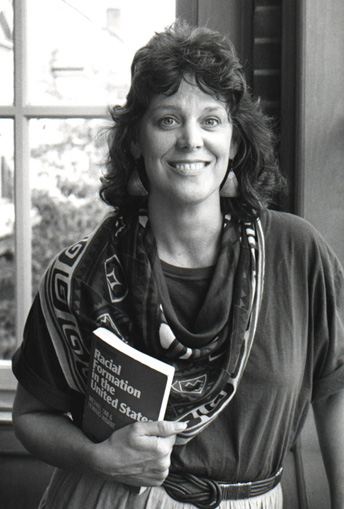
Dr. Karen Dugger, Chair and Associate Professor of Sociology, recalls
an incident from 1984, the year she began teaching at Bucknell.
She was the featured guest on a WVBU call-in show called "Dial A Feminist"
scheduled to coincide with National Women's History Week. Of the 19 calls
she received, 18 were from men, most from fraternities, where, at the
time, students had the readiest access to private phones.
"One of the most 'interesting questions'," Dugger smiles, "was from a
male caller, who said to me, 'I don't understand why you need a week to
celebrate women's history. What have they ever done?'"
Dugger told him, "That question is a consequence of your profound miseducation."
While she said the student was not responsible for his lack of knowledge,
she pointed out "your question points to the necessity for a curriculum
transformation project here at Bucknell. Women have been tremendous actors
in history. You don't know that because your educations has not taught
you that."
Several years later as founder and co-director of the Race/Gender Resource
Center, Dugger says, "What I would like our curriculum transformation
project to do is to make it impossible for any student to ask that question."
Bucknell World, January 1990
Mary Beth Gray '84, came to Bucknell in 1980 amd she remembers:
One of the first impressions I had while at Bucknell when I came was the intense pressure to fit into the social environment. Just the whole idea of walking into a cafeteria without a dinner date was really terrifing. To be able to just walk down the aisle and think, "Where am I going to set today was so scary to me." i would go out of my way to make dates throughout the week. wouldn lunch without someone assigned meet me at doors. establishing a network friends and fitting into social environment bucknell surpassed importance academic course work. significance that placed on events slowly changed. now when think back college experience if had it do all over again take advantage opportunities fullest degree.>
Women Remember When Series, 80's
2/12/96
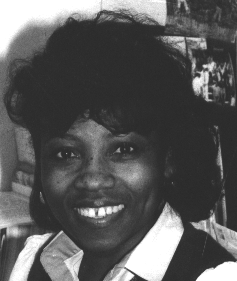

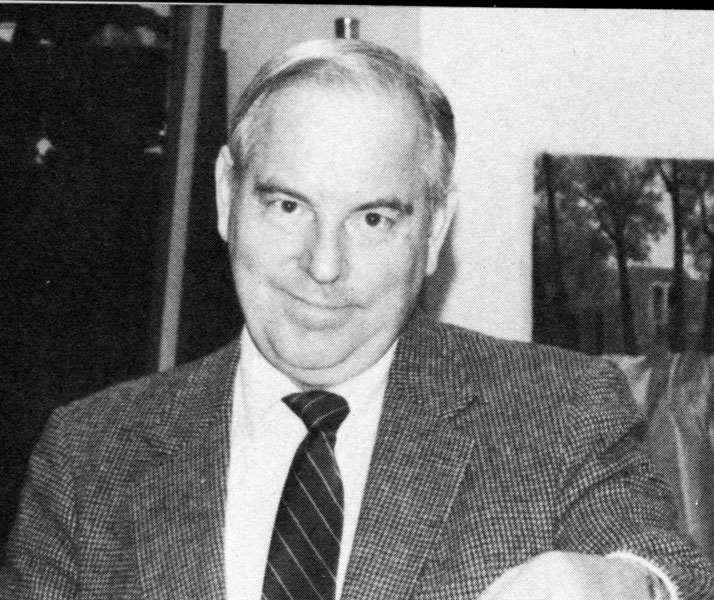
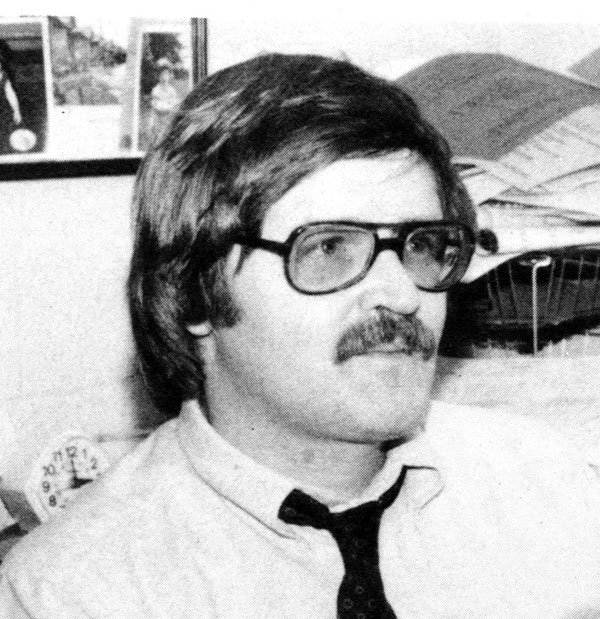
1. To examine those activities (including activities of social fraternities, sororities, and other organizations) which are in conflict with the aims of the University;
a. those which portray violence toward women and/or racial minorities as humorous and acceptable,
b. those which perpetuate negative stereotypes of men and women as well as of racial minorities,
c. those which present a verbal and symbolic message which undermines respect for the human dignity of all;
2. To recommend means by which to educate and inform the Bucknell community about such sexist and/or racist attitudes and practices;
3. To recommend means by which to eliminate sexist and/or racist attitudes and practices."
The group further states "Be it resolved that the faculty reaffirm our commitment to eliminating sexism and racism in all their forms and manifestations, a commitment consistent with the stated goals of the University: to enable students to grow in moral sensitivity and in respect for other persons' and to engage in institutional programs and practices that exemplify compassion, civility, and a sense of justice."
Committee Members: Andrea Halpern, co-chair, Judy Jackson, co-chair, Philip Drinker, Rose Ewan, Margaret Fischer, James Hammerlee, Jeanne Hey, Charles Longley.
Report on Racism at Bucknell, April 1985
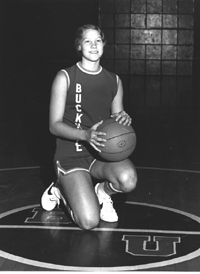
1995 Hall of Fame Induction Program
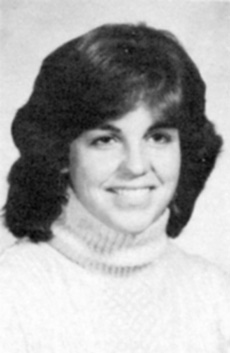
Recollection
Linda Naugle '85, came to Bucknell after a year and half at Hartford
College, and later attended Graduate School at Michigan State University.
She remembers:
"I did not take part in the Greek System. I do not agree that the Greek
system was very favorable at that time. I had many social frustrations
that stemmed from my attempts to fit the social norm at Bucknell." As
a resident of Lewisburg her goal was to attend any University but Bucknell.
As a transfer student she thought of Bucknell in different ways than anybody
else. She lived off campus and didn't really have a lot of the social
integration that a lot of students do.
"I was a Political Science major and at the time there weren't any Political
Science professors who were female. I think that just began when I graduated.
I think the University is changing in a positive manner, for women are
taking on higher positions. I would like to see more female professors
in the engineering and science fields. I would like to see a more diverse
population as well, as far as sexual orientation is concerned, race, ethnic
background, and social class. It would be nice for folks to get a different
perspective in the academic setting. That is what I hope to see happen
at Bucknell.
"When I graduated from Bucknell, I would have never imagined that I would
return here to work as a professional. Coming back to work here has been
quite nice because I come back to familiar surroundings. But then sometimes
I feel like I'm not really moving forward. So I look forward to finding
a way to move forward and maintain the good experiences that I have had
at this university. Sometimes, I look back and say "Bucknell, it's been
a part of my life since I was born. But it has been very significant,
very positive in my past. I hope the experience will be good for everybody
who goes through this university."
Women Remember When 1980's
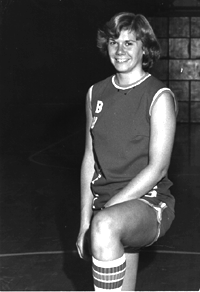
1995 Hall of Fame Induction Program

To the Editor:
We are gay students at Bucknell. We recognize our own homosexuality, but we are still a silent and invisible presence at the University. The purpose of this letter is to break the silence and to challenge homophobic attitudes.
We withhold our names in order to protect ourselves. We believe that ignorance, stereotypes and hatred of gays are perpetuated at all levels of the Bucknell campus. As such, we feel that by divulging our names we would face serious repercussions. The need to withhold identity testifies to the severity of our oppression and victimization as homosexuals.
We regret that Bucknellians do not constructively confront socialized attitudes of homophobia. We regret that some Bucknellians even brandish a violent disgust towards homosexuals and that still other Bucknellians propose righteous and moralistic arguments against us.
At a proclaimed liberal arts college, we believe that the intellectual and social climate must demand pluralist expression of opinions and life styles. Our professors and peers ask us to examine and challenge our politics, racism and sexism. However, students, faculty and administrators must challenge their homophobia as well.
As mature, responsible consenting adults, we are free to choose our sexual preference. We neither prevent nor threaten the moral and sexual lives of others. Therefore, we ask that homosexuals be extended the same psychological and socio-political freedoms that heterosexuals have. Also, we ask that heterosexuals examine and challenge their homophobia so that injustice and discrimination levied against individuals because of sexual preference will be eliminated.
Names Witheld
Bucknellian May 3, 1985
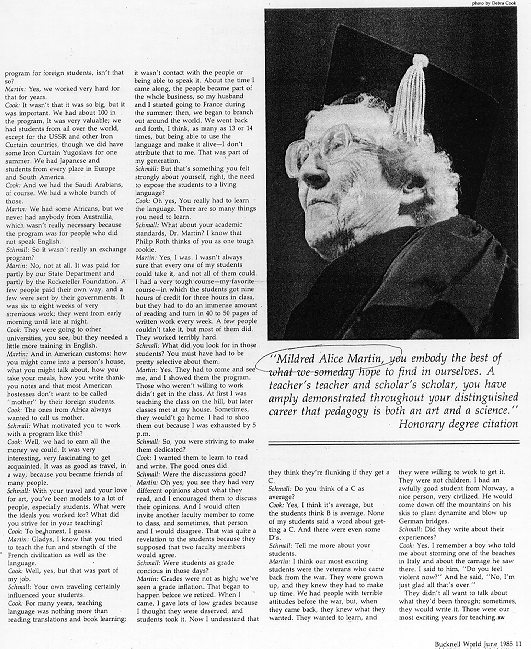
Public Relations News Release, 4/24/85
During a 1985 interview, Gladys Cook, retired Professor of French,
recalled:
"Oh yes, we were not allowed to smoke or drink anything when I came. At
that time I didn't smoke much, but I did smoke a little bit. So my first
night here I think I went out to the cemetary and found all the students
out there smoking. So, I decided I had to find another place. So I met
a couple of women that lived downtown and they said, 'you can come down
here anytimes you want to smoke.' Well, I didn't smoke much, but just
now and then."
Public Relations
During Spring Weekend, a group of predominantly black students and several
faculty members stage a "talk in" on the terrace outside the Bison snack
bar. Students discuss their experiences at Bucknell and the "perceived
lack of concern about the welfare and education of black students." Following
this emotional and compelling testimony, the group presents a list of
goals they hope to achieve, one goal being an expansion of the support
system already in place.
While Judy Jackson, considered a strong voice of support, is employed
part-time to serve the needs of both foreign and domestic minority students,
students feel they need a place to go with their concerns and interests.
Vernese Edgehill, '87, a Dana Scholar working in the office of the Vice
President for Planning and Administration, travels to other campuses during
the summer, investigating the models other institutions use to address
the needs of minority students. A report is issued and a petition and
letters of support are sent to President Gary Sojka calling for the establishment
of a Multicultural Center.
The Bucknellian 2/22/91, 1991 Student Handbook